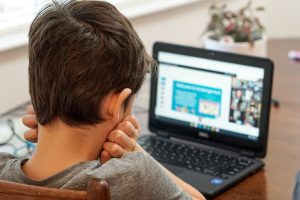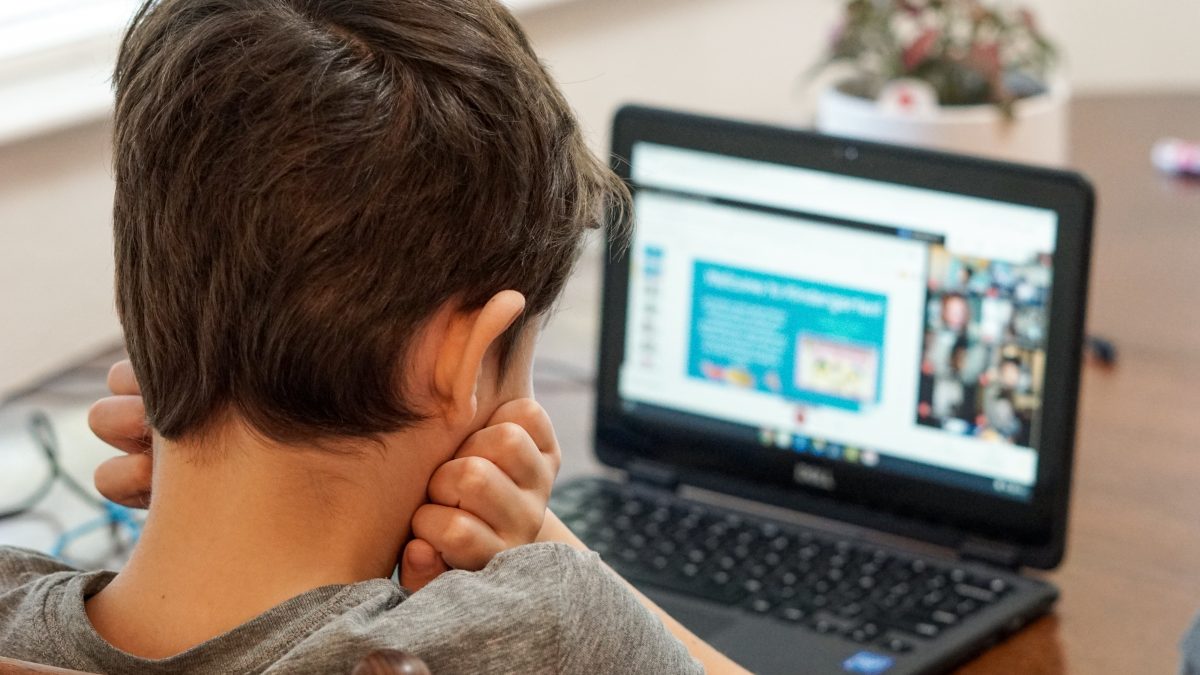Coping Through Virtual Learning At Home

Intrust #GivesBack at the Annual Pulaski Coach’s Show while supporting kids in the community
September 11, 2020
Let Go for New Growth!
September 30, 2020Coping Through Virtual Learning At Home

Photo by Thomas Park on Unsplash
Are you tired? Stressed out? Feeling overwhelmed?
Here we are at home (virtual learning) due to COVID-19 changing the world we all once knew. As of now, most of everyone’s school-age has started school, and most are virtual learning. What does this mean for you? What does this mean for our kids? A whole new world is currently engulfed in everyone’s lives while still trying to hold on to the old way of pre-covid19 learning. Get your chrome book’s ready and enjoy the ride. Wait?! What about mental health?
Mental health is an overall measure of our emotional, psychological, and social well-being. It affects how we think, feel, and act. It also helps determine how we handle stress, relate to others, and make choices. Mental health has been greatly impacted more than ever over the last 6 months due to new COVID-19 restrictions. Now, living in unprecedented times we are learning new ways of adaptation and coping skills. Let’s just focus on the challenges of virtual learning for now. There are always 2 sides to everything in which we weigh in on the pros and cons, so let’s talk about some virtual learning pros and cons.
|
PRO’s
|
CON’s
|
With all of the challenges presented this year; adaptation has definitely been present in the human race and being able to flow with changes. So, now that we know some of the pros and cons of virtual learning lets talk about how we are coping with this new change. Coping skills are very vital to maintain a positive mind frame and strong mental health. What is coping skills for one’s mental health?
Mental health coping skills are emotion-focused and problem-focused strategies. Coping skills help with tolerating, minimize, and dealing with stressful situations in life. Managing stress levels well can help you feel better physically and psychologically, and it can impact your ability to perform your best. When you’re feeling distressed, ask yourself, “Do I need to change my situation, or do I need to find a new way to cope with the situation?” Then, you can decide which type of coping strategies are best for you. Emotion-focused coping skills consist of exercise, taking a bath, giving yourself a pep talk, and meditation. Problem-focused coping skills consist of working on time management, asking for support, establish healthy boundaries, and create a to-do list. Of course, with everything, there is a healthy and unhealthy side even when it comes to coping skills. Here is a list of healthy coping skills to use:
Healthy Coping Skills
|
|
Everyone is human and is on their very own journey so what works for one person may not work for another. It’s important to know yourself and discover what best suits you on your own journey. Managing a routine that best suits your own family will be greatly beneficial for everyone overall. Having a scheduled routine helps gives our mental health a sense of purpose for the day. Once a routine is set in place keep track of time management and always allow time for fun in each day. Include healthy coping skills in your routine each day to promote a healthy mental state for overall the parents and children. Always be aware of unhealthy coping skills most people tend to go towards when feeling stressed and overwhelmed. Just remember unhealthy coping skills are a quick fix to difficult emotions but are not properly dealing with the emotion. Here is a list of unhealthy coping skills:
Unhealthy Coping Skills
|
|
The unhealthy coping skills appear to be a shorter list but is the most sought out after coping skills for people in difficult times. Not only are these coping skills sought after they are also encouraged. Liquor stores promote virtual learning for parents through their advertising and billboard signs. Such as saying: “Boxed wine for back to school essentials.” Also, restaurants advertising and making better deals for families to encourage their oversized portions. Unhealthy coping skills is a programmed feature in modern-day society. However, it’s important to develop your own toolkit of coping skills that you’ll find useful. You may need to experiment with a variety of coping strategies to help you discover which ones work best for you and your family as a unit. When it comes to coping skills, we can always make room for improvement. So, evaluate other tools and resources you can use and consider how you might continue to sharpen your skills in the future.
Taking your mental health seriously is the first step. In order to make a change, it starts with you! If you are interested in services, please give us a call at 606-676-0638 and get services started TODAY! Stay #HealthyAtHome with counseling and case management services using your phone, tablet or computer from anywhere in Kentucky.
Maria Crabtree M.Ed.; LPCC-S
Intrust Therapist since 2012.
Related posts
Photo by Kouji Tsuru on Unsplash




